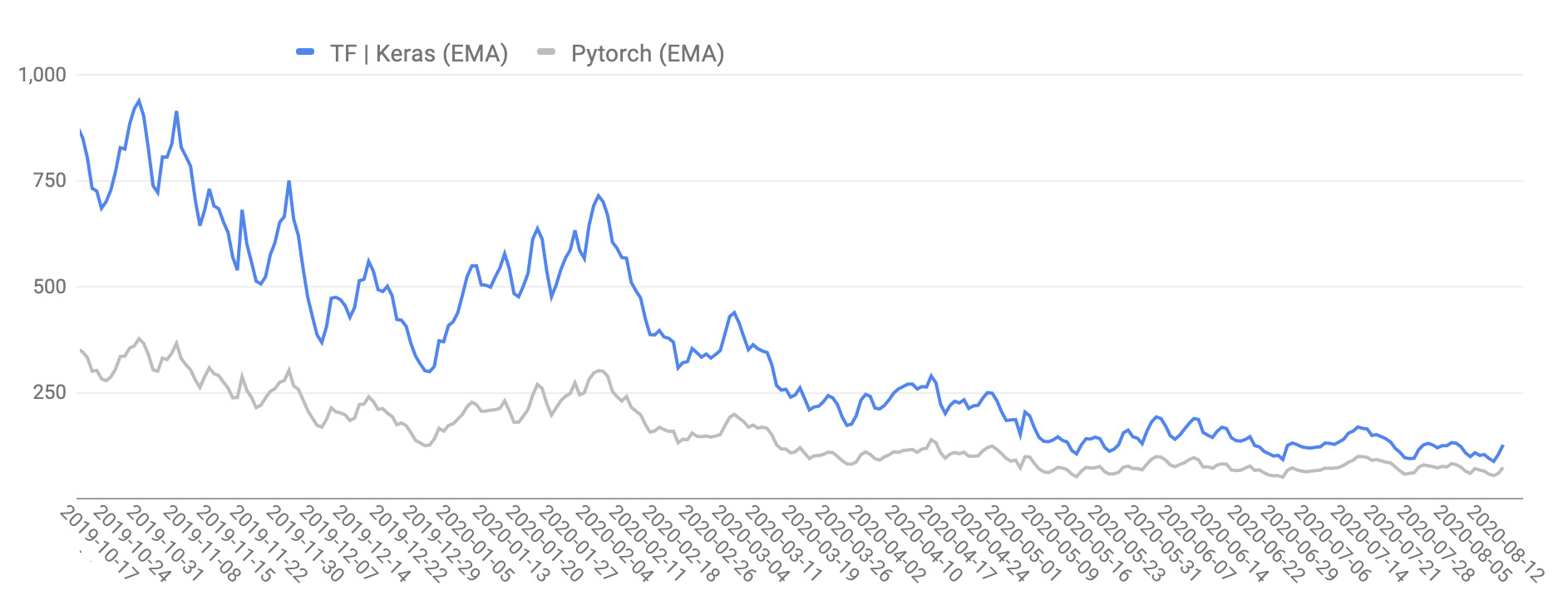Deep Learning Recession
Despite the excitement around GPT-3, there’s been surprisingly little hype (read as: large corporate marketing) on the topic of AI/ML.
Apropos of nothing, Francois Cholllet posted on Twitter that there’s been a sharp decline in Deep Learning job postings. The link to the tweet, as well as the HN discussion:
https://news.ycombinator.com/item?id=24330326
After attending NeurIPS 2019, I too walked away with a strong thesis that ML/DL is experiencing a local minima. Or in hype cycle parlance, a “trough of disillusionment.”
I’m also reminded of this quote from Mark, whose thinking I admire on the topic:
AI is like traveling back to 1995 and people realize they need a website and half the people don’t know what that is. It’s a new form of programming, that enables teaching, instead of rules based tasks.
-Mark Hammond

My discussion with Matei (co-founder @ Databricks) provides balance, and anecdotal evidence that the labor market can calibrate headcount investment, while existing funded projects can continue and grow at large enterprises with resilient budgets for both research and production deployments.
Why can’t both be true?
— Anuj Bhatia (@anooj) August 31, 2020
Totally possible Databricks usage is growing and decline in headcount investment for overall market.
As someone who spends most days helping ML practitioners on our platform, this LinkedIn data is a remarkable indicator even in the context of the macro employment and economic environment. However, it does seem intuitive that AI/ML is a multi-decade project to empower humanity. This is unlike the mobile era, which (post-iPhone) took only 10 years to reach saturation in unit growth. Where the first 5 years of adoption were mostly capital allocation decisions, not business model transformation. Fundamentally, many (even technology) organizations will simply self-select based on their culture, business models, and previous foundational investments.
You could see the same kind of bifurcation in the late-1990s/early-2000s. Among my favorite examples is American Airlines’ creation of Sabre Corporation (at one point, the largest commercial real-time data-processing system for bookings). AAL then spun it out as a separate business which subsequently led to Travelocity. The value created by the initial investment in technology is amazing. The technology was widely available to all airline operators, but only one was able to create a meaningful technology platform enabled by the internet.
As AI (and the related data engineering) becomes cheaper, more accessible, and better packaged in APIs and connectors, I’m on the hunt for the jobs to be done. More than anything, I’m excited that customers are getting increasingly disciplined in how they approach projects, think about success, and reason about the return on invested capital.